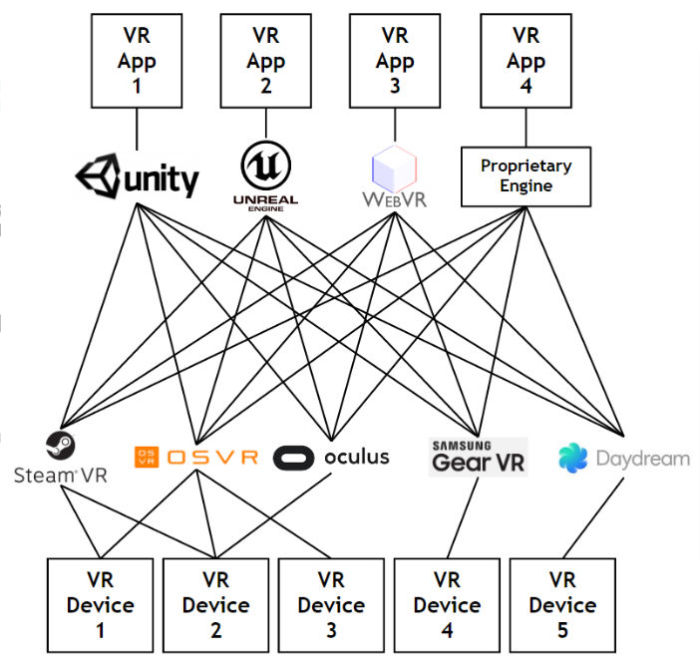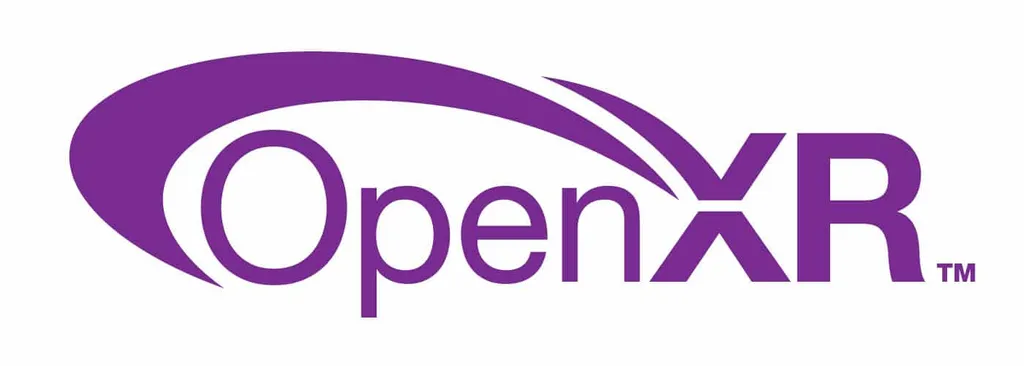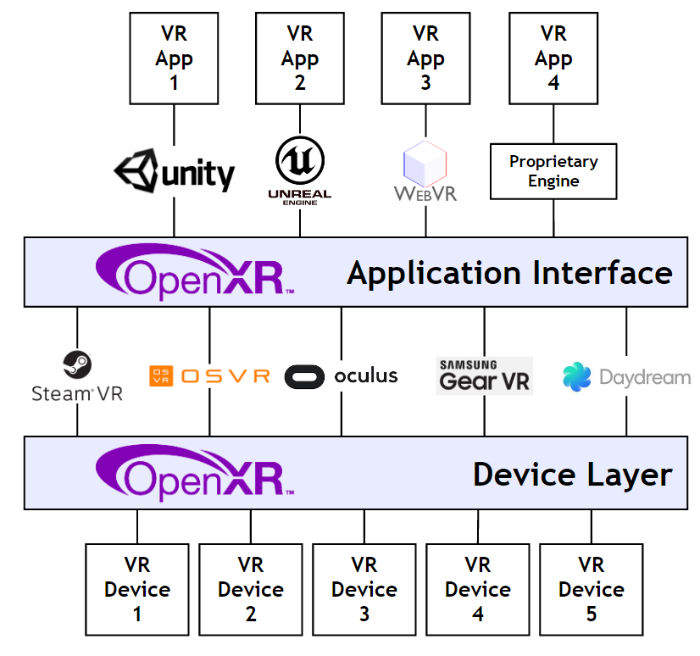In December of last year, Khronos group made headlines for adding Epic Games to the list of companies in support of their pursuit of an API standard for virtual and augmented reality. Representatives for Google VR, Intel, and others already voiced their support of Khronos’ work by that point, but Epic’s Unreal Engine allowed Khronos to focus on a potential wider adoption of the standard. A couple months later, that standard now has a name as Khronos unveils the OpenXR working group at GDC 2017.

As noted when we reported on the Epic Games support for Khronos’ standard, there’s a degree of fragmentation in the VR and AR industry as different groups attempt to innovate with their different interfaces. OpenXR aims to address the fragmentation created as a result of developers having to port to the APIs of different vendors. The OpenXR website points out that this practice leads to higher development costs and confused customers, which limits industry growth. The solution of a set standards means that application devs will only have to write code once and it will run everywhere.
Also announced at GDC, Khronos’ GPU standard Vulkan is gaining momentum. A handful of games have been released utilizing the standard since it was made available back in February of 2016. They’re releasing new extensions for VR and multi-GPU functionality.
Vulkan is a testament to the benefits of a standard and they’re looking for more companies to jump on board for OpenXR as they’ve moved beyond the exploratory phase and are now developing the actual standard. Samsung, Oculus, Valve and a great many others are on board and it is likely many more will jump on board now that there’s a finish line in sight that mutually benefits the industry collectively.



























